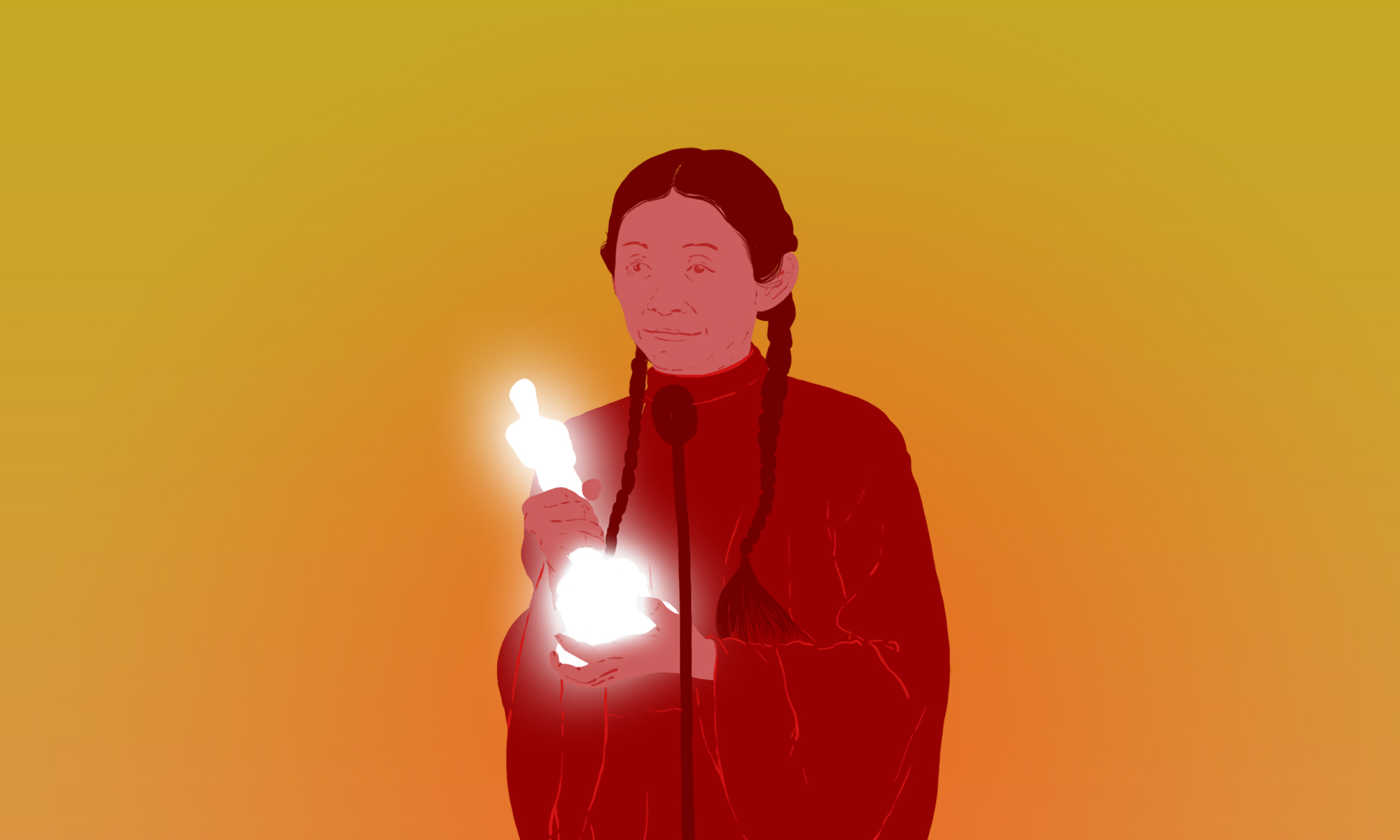Historic Oscars win for Chloé Zhao’s ‘Nomadland’ met with stifled cheers and media blackout in China
Chinese-born director Chloé Zhao has been embraced by Hollywood, winning a Golden Globe and now an Oscar for a film that aspires to be universally appealing and pushes none of Beijing’s sensitive buttons. So why isn’t China celebrating?

On Sunday night, Beijing-born filmmaker Chloé Zhao (赵婷 Zhào Tíng) became the first woman of color, the first Chinese woman, and the second woman ever to win the top directing prize at the Oscars. She was recognized for her acclaimed road-trip drama Nomadland, which also took home the award for Best Picture.
While taking the stage at Los Angeles’s Union Station to accept her award for Best Director, Zhao, 39, thanked her fellow nominees and her Nomadland team. She also spoke proudly of her Chinese roots, saying that she used to read and recite classic Chinese poems with her father when growing up in Beijing, and one particular phrase from the Three Character Classic (三字经 sānzìjīng) shaped much of her life philosophy.
“People at birth are inherently good” (人之初 性本善 rénzhīchū xìngběnshàn), she said in Chinese, before going on to explain how the six Chinese characters inspired her to “always find goodness in the people” she encountered.
“This is for anyone who has the faith and the courage to hold out for the goodness in themselves and each other, no matter how hard it is to do that,” she said. “This is for you. You inspire me to keep going.”
Silence in state media, censored from social
But in China, where Zhao was born and raised, her history-making victory at the Academy Awards didn’t win her much favor with nationalist trolls nor with the country’s censorship apparatus — at least not enough to offset the backlash she received in March for comments in years-old interviews that were interpreted as critical of her home country.
As of today, Chinese state-run news media outlets, which usually waste no time celebrating and even claiming credit for Chinese artists’ achievements overseas, have largely ignored the Oscars, with no discernible mention of Zhao’s groundbreaking night on China Central Television, Xinhua News Agency, or the Chinese Communist Party’s newspaper, the People’s Daily.
One of the only stories on Zhao’s Oscar win was published in the Global Times’s English edition today. Titled “‘Nomadland’ reminds those caught between U.S.-China rivalry to keep faith,” the editorial article acknowledged Zhao’s “success in the U.S.,” but it urged the director to become “more mature” at a time when the U.S.-China confrontation deepened. “She can play a mediating role in the two societies and avoid being a friction point,” the paper wrote. “She cannot escape her special label, and she should actively use it.”
News posts and discussions about Zhao’s awards also faced partial censorship on Chinese social media and search engines. On Weibo, a post announcing Zhao’s directing win by film magazine Watch Movies, which has over 14 million followers on the platform, was taken down a few hours after it appeared Monday morning. The hashtag “Chloe Zhao has won Best Director at the Oscars” (赵婷拿下奥斯卡最佳导演奖) was also censored on Weibo, with users getting an error message saying, “According to relevant laws, regulations, and policies, the page is not found.”
Searches for Zhao’s name on Baidu, China’s top web service, produced numerous links to news of her previous accolades, but few of them were recent or related to her Oscar win. Douban, China’s largest movie rating website, also banned searches for Nomadland and “Zhao Ting,” stating that “the search results could not be displayed in accordance with relevant laws and regulations.” Discussion threads about Zhao’s Oscars moment were blocked on the site as well.
But despite the high-level suppression of Zhao’s victory, there has been a moderate outpouring of praise for the director on the Chinese internet. To evade censorship, some social media users resorted to using “ZT” and “WYZD,” the initials of Zhao’s Chinese name and her film’s Chinese title (无依之地), to post about her. “Why did WYZD and ZT get blocked? Her win was supposed to be a moment of pride for all Asians around the world. But the censorship made her look like she filmed something that she should be ashamed of,” a Weibo user wrote (in Chinese). Others compared the muted response in China to Zhao’s Oscars sweep with the outburst of joy in South Korea when Bong Joon Ho’s Parasite won a leading four awards at last year’s Oscars. “It’s an incredibly well-deserved win for Zhao. It saddens me that this is how she’s treated in her home country,” another Weibo user commented (in Chinese).
The China reaction, or lack thereof, perhaps shouldn’t come as a shock given that the coverage of the Oscars in Chinese media was tightly restricted in the weeks leading up to Sunday’s ceremony. Due to fears that there might be some pointed comments about China on the stage — particularly after the nationalist backlash against Chloé Zhao and the nomination of Do Not Split, a short documentary about the Hong Kong protests — none of the Chinese broadcasters aired the ceremony, including two major streaming platforms where the annual event had been shown live in previous years. And for the first time in over five decades, the ceremony was also not broadcast in Hong Kong, which is under increasing control by Beijing.
The earlier controversy
Zhao, who was born in China and moved abroad at the age of 14, was first embroiled in controversy in her country of birth in March, when she won a Golden Globe for Best Director and internet sleuths unearthed some critical comments she made about her childhood in China. “There are lies everywhere,” she told the New York–based Filmmaker magazine in 2013. “You felt like you were never going to be able to get out.”
At the time, some also questioned if she could really be called Chinese after spending most of her adulthood overseas. Their doubts intensified when another interview of her emerged, in which she told Australian website News.com.au that “the U.S. is now my country.” Although the publisher later updated the article, writing that it misquoted the director and that what she actually said was “the U.S. is not my country,” most critics were convinced that the correction was an attempt on Zhao’s part to save herself from further controversy.
As a direct result of the backlash, Chinese censors scrapped promotional materials for Zhao’s Nomadland from Weibo. The film, which was originally scheduled for a limited theatrical release in China on April 23, was also removed from listings on Maoyan and Tao Piaopiao, two of China’s key online ticketing platforms. As of today, there is no indication that Nomadland is coming to Chinese theaters anytime soon.






